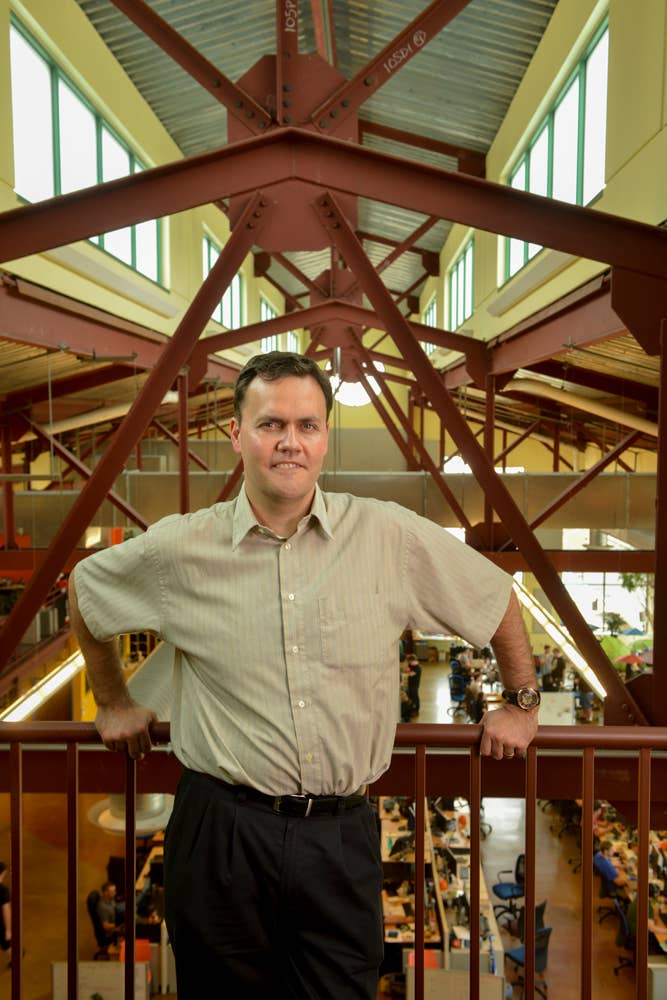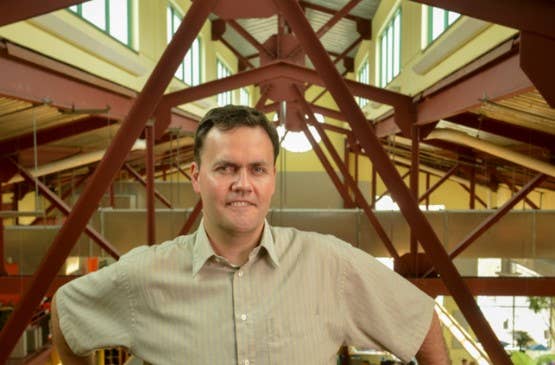Best Places To Work Awards Winner: Schell Games
We interview educational games developer Schell Games, one of the 11 winners of our first GamesIndustry.biz US Best Places To Work Awards
One of the exciting things about the winners of our US Best Places To Work Awards was the variety of winners we had.
There were PR agencies and tech firms, alongside several game developers. And each developer had their own unique flavor. Schell Games -- which also won our Diversity Award -- is a games developer that's well known for its educational and health games. And the types of products it makes can be seen reflected in the culture of the studio itself.
Following its victory, we caught up with CEO Jesse Schell to find out more about the company and what it does.
For those that don't know, what is Schell Games?
At Schell Games, we have four lines of business: home entertainment games, educational games, health games, and interactive theme park and museum experiences. Lately, we've been doing a lot of VR experiences, such as I Expect You To Die and Until You Fall in the entertainment space, and partnering with companies like Penumbra in the VR for health space. We love working on outside the box projects that are something more than just a game.

So why do you think your staff rated you as a great place to work?
Simply put, the people at Schell Games are what make it an incredible place to work. 'Amazing Teams' is one of our core values, and we have always given a lot of attention to bringing in the very best people, and then helping to train and coach everyone so that they can be the best team member they can be.
One of our principles is: 'Diversity makes us strong', which reflects the fact that we make cultural diversity of our developers a priority, but also it reflects the tremendous diversity we have in our projects. Creative people really thrive on diversity of interesting problems to solve, and we definitely have that.
What are the main challenges you face in terms of keeping employees happy?
The reason it can be hard to keep everyone happy at a game studio is because different people are made happy by different things. Some people like short projects, others like long projects. Some people love VR, some hate it. Some people want all their work planned out in detail, others like the adventure of exploration during development. The solution is you have to get to know what makes everyone happy, and then work hard to create situations where everyone gets what they want.
You can't always succeed, but it is worth it to put as much energy into this as you can, because people who are working on something that makes them happy create much, much better games than people who are just going through the motions.
How have you found to adapting to COVID-19?
Quarantine was very challenging for us, as we are a studio very focused on the power of face-to-face communication. We were able to make it work much better than we expected, but at the same time, we definitely lost some efficiency, and people needed more time off than normal.
"The game industry's been dominated by cis white males for a long time, and has been slanted against everyone else. We are working to change this"
It was the new people who had it the hardest -- those of us who have worked together for years were able to draft off of our pre-existing relationships, but new people were much less comfortable with purely virtual interaction. There is something about spending time together in the real world that helps you learn who to trust and when. Of course, now we're moving to a whole new challenge: hybrid teams, where some people are in office, and some are at home. We're trying all kinds of experiments to figure out best practices for balancing productivity and communication.
What do you feel needs improving about working in video games, and what are you doing to help?
The game industry in the US suffers significantly from a history of systemic racism and sexism. It's been dominated by cis white males for a long time, and has been slanted against everyone else. At Schell Games, we are working to change this through hiring practices that intentionally seek out diverse candidates, often by looking in places that the industry overlooks, and by trying to bring people in from other fields that are more naturally diverse than the game industry tends to be.
One initiative we are very proud of is the ETC Fellowship Fund at Carnegie Mellon University. This is a full scholarship for people underrepresented in the game industry into the Entertainment Technology Center, which has proven to be a real fast-track to game industry leadership. We are always glad to talk to other studios about finding creative ways to help make the game industry more inclusive.
What new initiatives are you looking to introduce to your company going forward?
At the moment we are very focused on finding the best possible policies about flexible work-from-home. It is challenging to find the balance between letting people work where they want to, but also maximizing productive communication between teams.
We're in a heavy period of experimentation right now, with a goal of having solid, flexible policies in place by 2022. We are also in the process of creating an apprenticeship program that will allow students to go straight from high school into our studio, and be able to attend online college while they are getting industry experience.
Check out Schell Games during the 2021 US GamesIndustry.biz Best Places To Work Awards below:


